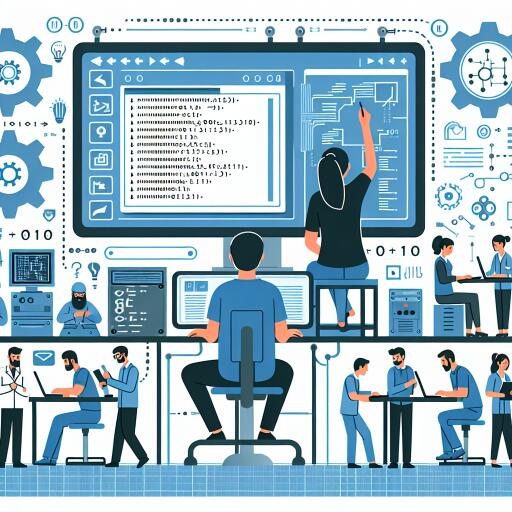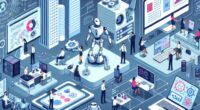Unlocking Efficiency Through Coding: A Guide for Industrial Engineers in Data Analysis
In an era dominated by big data, industrial engineers find themselves grappling with the demanding task of deciphering complex datasets to catapult efficiency, productivity, and quality across various sectors, including manufacturing and service industries. This rising challenge has swiftly brought coding skills to the forefront of an industrial engineer’s arsenal, especially in the realm of data analysis. This guide delves into the crucial coding proficiencies that industrial engineers must arm themselves with to soar in data analysis and foster innovation within their sphere.
The Rising Demand for Coding Skills in Industrial Engineering
Gone are the days when coding was exclusively reserved for the realms of computer science and software development. Today, industrial engineers rely heavily on their ability to code. This skill is vital for automating processes, crafting simulations, optimizing operations, and extracting valuable insights from heaps of data. As industries pivot towards digital transformation, coding skills empower industrial engineers to harness computational might to unravel sophisticated engineering quandaries.
Among numerous programming languages, Python emerges as a quintessential choice for data analysis, courtesy of its simplicity, readability, and the rich environment it offers through its extensive ecosystem of libraries. Libraries such as NumPy, for numerical computing, pandas for data manipulation, and Matplotlib for data visualization, stand as indispensable tools for industrial engineers. The versatility of Python paves the way for it to seamlessly integrate with web applications, databases, and even embedded systems, making it a powerhouse for industrial data analysis.
The Power of R and Cloud Computing
Similarly, R holds its ground as a formidable language for statistical analysis and crafting sophisticated visualizations. Its prowess in facilitating exploratory data analysis, hypothesis testing, and advanced visual creations makes it a gem for engineers focusing on quality control and process enhancement. R endows industrial engineers with a robust statistical modeling and inference platform, essential for in-depth analysis.
Moreover, embracing cloud computing platforms such as AWS, Azure, and Google Cloud can propel industrial engineers into new heights of data handling capability. These platforms offer expansive resources for data storage, processing, and analysis on a scalable level. Familiarity with cloud services enables engineers to deploy robust data analytics solutions designed to expand alongside organizational growth. Skills in engaging with cloud-based databases, tapping into machine learning services, and utilizing serverless computing can significantly boost an engineer’s data analytical prowess.
SQL: The Bridge to Database Management
The proficiency in Structured Query Language (SQL) remains an essential feather in the cap of an industrial engineer. SQL is the cornerstone for managing and querying relational databases meticulously. To navigate through large volumes of data, perform complex queries, and merge tables to distill actionable insights, a solid grounding in SQL is indispensable. Additionally, understanding the nuances of database design and administration is invaluable for ensuring data integrity and bolstering security measures.
Commitment to Continuous Learning
As the landscape of data analysis continually shifts with an influx of new tools and methodologies, industrial engineers must remain committed to a path of lifelong learning. Staying abreast with the latest technological advances through community engagement, workshop participation, and attaining relevant certifications can shield engineers from obsolescence and sharpen their competitive edge.
Coding skills have transcended the realm of mere preference to become a cornerstone necessity for industrial engineers aspiring to excel in a digitized, data-driven world. By acquiring fluency in languages such as Python, SQL, R, and MATLAB, industrial engineers can unveil the vast potential of data analysis to elevate efficiency and spur innovation within their respective industries.
In summary, the capability to decode data through coding is not just an added advantage but a critical lifeline for industrial engineers aiming to lead the charge in optimizing processes and enhancing productivity. The journey towards mastering these coding skills promises to be a rewarding venture, unlocking doors to untapped potential and setting the stage for groundbreaking advancements in the field of industrial engineering.










